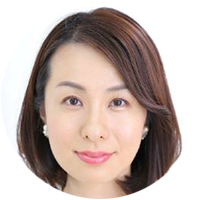Makiko Mitsunami, MD | Introduction to Clinical Research, Global Clinical Scholars Research Training, Masters of Medical Sciences in Clinical Investigation

Makiko Mitsunami, MD, a Japanese obstetrician and gynecologist, has been participating in Harvard continuing education programs since 2018. First was the Harvard Medical School (HMS) Introduction to Clinical Research (ICRT). Then, it was the Global Clinical Scholars Research Training (GCSRT) program until 2019. Then, from 2019 until her graduation in May 2021, it was the Masters of Medical Sciences in Clinical Investigation (MMSCI).
Now, she's in Boston as a postdoctoral research fellow at the Harvard T.H. Chan School of Public Health, collaborating with her research mentor Jorge E. Chavarro, MD. So it's safe to say that the coursework has been profoundly influential on her life and work; she has never taken a single course in English to complete research full-time in the U.S.—all in three short years.
An Academic Path to Greater Research
Mitsunami had already practiced for a decade in rural Japan when she felt she needed to gain experience as a researcher. As a condition of her academic scholarship, she would need to complete the work remotely; "I was very lucky to find the Harvard program," she explains.
"I had the opportunity to do a randomized clinical trial in a support position at a prominent hospital in Japan, but I realized then that I needed to improve my skills and knowledge to continue moving forward." While there are many researchers in Japan, she notes, it can be challenging to find a well-established and structured program that focuses on conducting valuable clinical research, with particular emphasis on statistics and epidemiology, and becoming a physician-scientist.
Her professor knew about the HMS programs and encouraged her to apply. Initially, she found the work in ICRT—as a novice on several subjects and learning the language simultaneously—more challenging than she expected. "I was struggling to follow the recordings, and for the team assignments, I needed to learn to communicate more effectively, so it was challenging for me," she remembers.
She still found the experience worthwhile but was done after only six months. Since her cohort had primarily been made up of other professionals from Japan and other East and Southeast Asian countries, she was craving something a bit more global—something she could still complete remotely. So she decided to enroll in GCSRT.
There, she says, she improved her international communication skills. Some of her classmates already had varied and in-depth research careers made her excited to learn from them and potentially collaborate in the future. Some of the faculty members were the same in both programs, and she got to know them well.
"One of the faculty recommended for me to join MMSCI after I completed GCSRT. Through the coursework, I realized that faculty members in GCSRT were providing important research and discoveries to the world. It would be an excellent experience if I could continue working with them and develop my knowledge and attitude towards professional work. So I decided to come to Boston," she remembers with a laugh. So her academic path at Harvard continued.
Important Projects in Gynecology and Obstetrics
Mitsunami is interested in drawing both from her medical expertise and her cultural background in her research. For her GCSRT capstone project, she developed a grant application task centered on Chinese herbal medicine and how it may impact and mitigate cancer treatments' side effects.
As an MMSCI student, Mitsunami had the opportunity to participate in mentoring research and was matched with Chavarro — whose work intersects with the nutritional and environmental impacts on reproductive medicine. "That's exactly what I wanted to investigate," she says. "There are women who want to get pregnant but have never considered their lifestyle habits, especially diet, which can severely impact their desire to have children—and it can affect their babies' lives, too." There is still an abundance of research in this area, as the exact causal relationships are as yet entirely unknown.
Her MMSCI thesis explored how men’s dietary patterns affected couples who underwent IVF treatment regarding fertility outcomes. She plans on continuing this research for women’s health and further exploring the impact of diet. "When I worked as a clinician, I realized women who have an unhealthy diet could have better outcomes if they could modify their lifestyles before they got pregnant. Now I’m at the stage where I can potentially be a provider who can speak to the compelling or preventive evidence of diet," she says.
While she was at Harvard Medical School, she and a classmate who had graduated from the Harvard T.H. Chan School of Public Health in 2020 investigated HPV vaccine hesitancy in Japan. Widespread misinformation in the Japanese media caused the government to stop endorsing its use; vaccination rates dropped from 70 to less than 1 percent as young women were suddenly hesitant to get the shots.
They realized that public opinion had to change to influence a change in Japanese policy. Therefore, they established a general incorporated association for HPV vaccine enlightenment called Minpapi, which is designed to help people receive the correct information about the vaccine's effectiveness and safety while combating misinformation. The project was an immense success, and "after that, the Japanese government announced they'd resume the discussion about recommending the HPV vaccine." she says.
Looking Ahead to a Bright Research Future
Since starting along her Harvard trajectory in 2018, her life has changed. In 2021, she received funding for her postdoc research fellowship, both from the Rotary Foundation and from sources in Japan. In addition to her current work, she is also planning on collaborative research with a Japanese group that works in a similar area to provide more global evidence around health—which was made possible from connections at Harvard.
"My research network is becoming broader and broader," she says.
Learn more about Global Clinical Scholars Research Training, the Master of Medical Sciences in Clinical Investigation, and Introduction to Clinical Research (now Foundations of Clinical Research.)
Written by Katherine Igoe